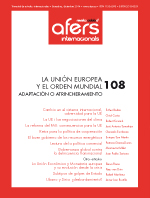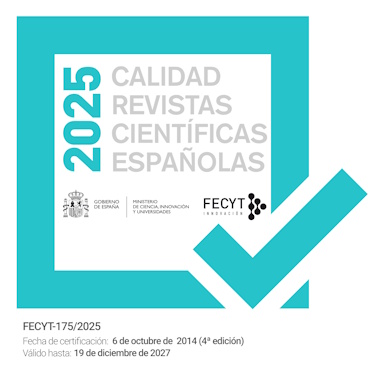Subtypes of coups d’état: recent transformations of a 17th century concept
Keywords:
coup d’état, military, legality, legitimacyAbstract
Revista CIDOB d’Afers Internacionals, nº 108
Quadrimestral (September-December 2014)
ISSN:1133-6595 | E-ISSN:2013-035X
Ostensibly, the coup d’état as a practice has been virtually eradicated, or confined, at least, to failed African states. Nevertheless, in recent years various changes of government in Latin America (and even Europe) have provoked serious doubts to be raised as to their legality and legitimacy, and they have come to be regarded as coups d’état. In light of this reality, this study attempts to go deeper into the concept of the coup d’état, right through from its creation in the 17th century to our times, in order to determine the evolutionary changes that the concept has undergone and to extract the lowest common denominator that has remained unchanged. With these premises established, the presumed evolutionary course of the concept in the 21st century is plotted and the typologies it might generate are proposed.
>> The full text articles of this issue are available only in Spanish language
References
Andrés, Jesús de. «The Coups d’Etat and the International Context». CPA Estudios/Working Papers, n.º 10 (2004), p. 1-18.
Andrés, Jesús de. El voto de las armas. Golpes de Estado en el sistema internacional a lo largo del siglo XX. Madrid: Catarata, 2000.
Angeles, Peter A. Dictionary of Philosophy. New York: Barnes & Noble, 1981.
Bankowicz, Marek. Coup d’état. A Critical Theoretical Synthesis. Frankfurt: Peter Lang, 2012.
Bartelson, Jens. «Making Exceptions: Some Remarks on the Concept of Coup d’Etat and Its history». Political Theory, vol. 25, n.º 3 (junio de 1997), p. 323-346.
Bueno de Mesquita, Bruce y Smith, Alastair. The Dictator’s Handbook: Why Bad Behavior Is Almost Always Good Politics. New York: Perseus Books, Public Affairs, 2011.
Carlton, Eric. The State against the State. The Theory and Practice of the Coup d’Etat. Aldershot: Scholar Press, 1997.
Castro Bastos, Leónidas. Golpismo. Lima: Editorial Librería e Imprenta D. Miranda, 1964.
Cohen, Morris R. y Nagel, Ernest. An Introduction to Logic and Scientific Method. Nueva York: Harcourt, Brace, 1934.
Collier, David y Levistsky, Steven. «Democracy with adjectives: Conceptual innovation in comparative research». World Politics, n.º 49 (1997), p. 430-51.
Collier, David y Mahon, James E. «Conceptual “Stretching” Revisited: Adapting Categories in Comparative Analysis». The American Political Science Review, vol. 87, n.º 4 (1993), p. 845-855.
David, Steven R. Third World Coups d’État and International Security. Baltimore: The Johns Hopkins University Press, 1987.
Dix, Robert H. «Military Coups and Military Rule in Latin America». Armed Forces & Society, vol. 20, n.º 3 (1994), p. 439-56.
Evans, Graham y Newnham, Jeffry. The Dictionary of World Politics. Nueva York: Simon & Schuster, 1990.
Finer, Samuel Edward. The Man on Horseback. Nueva York: Frederick A. Praeger, 1962.
Friedrich, Carl Joachim. El hombre y el gobierno. Una teoría empírica de la política. Madrid: Tecnos, 1968.
Frosini, Tomaso Edoardo. «Anatomía y anomalía de un gobierno técnico. El caso italiano». Teoría y Realidad Constitucional, n.º 30 (2012), p. 293-300.
Gaspar Tapia, Gabriel. «Defensa Nacional y Democracia», en: González Guyer, Julián (comp.), Debate Nacional sobre Defensa. Aportes Internacionales. Montevideo: PNUD y Ministerio de Defensa Nacional, 2006.
Goertz, Gary. «Point of Departure: Intension and extension», en: Collier, David y Gerring, John (eds.). Concepts and Method in Social Science. The tradition of Giovanni Sartori. Nueva York y Londres: Routledge, 2009.
Goertz, Gary. Social Science Concepts. A user’s Guide. Princeton y Oxford: Princeton University Press, 2006.
González Calleja, Eduardo. Los Golpes de Estado. Madrid: Arco Libros S.L., 2003. Hochstetler, Kathryn y Samuels, David. «Crisis and Rapid Reequilibration: The Consequences of Presidential Challenge and Failure in Latin America». Comparative Politics, vol. 43, n.º 2 (2011), p. 127-45.
Lieuwen, Edwin. Generals vs. Presidents: Neomilitarism in Latin America. Nueva York: Praeger, 1965. (Cito por edición en español: Generales contra Presidentes en América Latina. Buenos Aires: Ediciones Siglo XX, 1965).
Lieuwen, Edwin. Arms and Politics in Latin America. Nueva York: Praeger, 1960. (Cito por edición en español: Armas y política en América Latina. Buenos Aires: Sur, 1960).
Luttwak, Edward. Coup d’Etat. A practical Handbook. Cambridge: Harvard University Press, 1979.
Malaparte, Curzio (seudónimo de Kurt Erich Suckert). La Technique du coup d’État. París: Grasset, 1931. (Cito por edición en español: Técnicas de Golpe de Estado. Barcelona: Planeta, 2009).
Marshall, Monty G. y Marshall, Donna Ramsey. Coup d’État Events 1946-2011. Codebook. Vienna, Virginia: Center for Systemic Peace, 2012.
Marsteintredet, Leiv y Berntzen, Einar. «Reducing the Perils of Presidentialism in Latin America through Presidential Interruptions». Comparative Politics, vol. 41, n.º 1 (2008), p. 83-101.
Martínez, Rafael. Los mandos de las fuerzas armadas españolas del siglo xxi. Madrid: CIS, 2007.
Naudé, Gabriel. Considérations politiques sur les coups d’estat. Roma, 1639. (Cito por edición de Ámsterdam: Daniel Elzevier, 1667, sobre el original de Roma).
Nordlinger, Eric A. Soldiers in Politics: Military Coups and Governments. Englewood Cliffs, New Jersey: Prentice Hall, 1977.
O’Kane, Rosemary H.T. The Likelihood of Coups. Aldershot, Avebury: Grower Publishing Co. Ltd, 1987.
Pérez-Liñán, Aníbal. Presidential Impeachment and the New Political Inestability in Latin America. Cambridge: Cambridge University Press, 2007. (Cito por edición en español: Juicio Político al Presidente y nueva inestabilidad política en América Latina. México: Fondo de cultura Económica, 2009).
Plano, Jack; Greenberg, Milton; Olton, Roy y Riggs, Robert E. Political Science Dictionary. Hinsdale: The Dryden Press, 1973.
Putnam, Robert D. «Toward Explaining Military Intervention in Latin America Politics». World Politics, vol. 20, n.º 1 (octubre 1967), p. 83-110.
Salomón, Leticia. «El Golpismo como factor de descomposición de las relaciones civiles militares», Documentos CIDOB América Latina, n.º 36. (2013), p.93-105.
Sartori, Giovanni. Social Science Concepts: A Systematics Analysis. Beverly Hills: SAGE, 1984.
Sartori, Giovanni. La Politica. Logica e metodo in scienze sociale. Milán: SugarCo Editione, 1979. (Cito por edición en español: La Política. Lógica y método en las ciencias sociales. México: Fondo de Cultura Económica, 1984).
Sartori, Giovanni. «Concept Misformation in Comparative Politics». American Political Science Review, n.º 64 (1970), p 1.033-1.053.
Solaún, Mauricio. Sociología de los golpes de Estado latinoamericanos. Bogotá: Ediciones de la Universidad de los Andes, 1969.
Zimmermann, Ekkart. «Toward a Causal Model of Military Coups d’Etat». Armed Forces & Society, vol. 5, n.º 3 (1979), p. 387-413.













